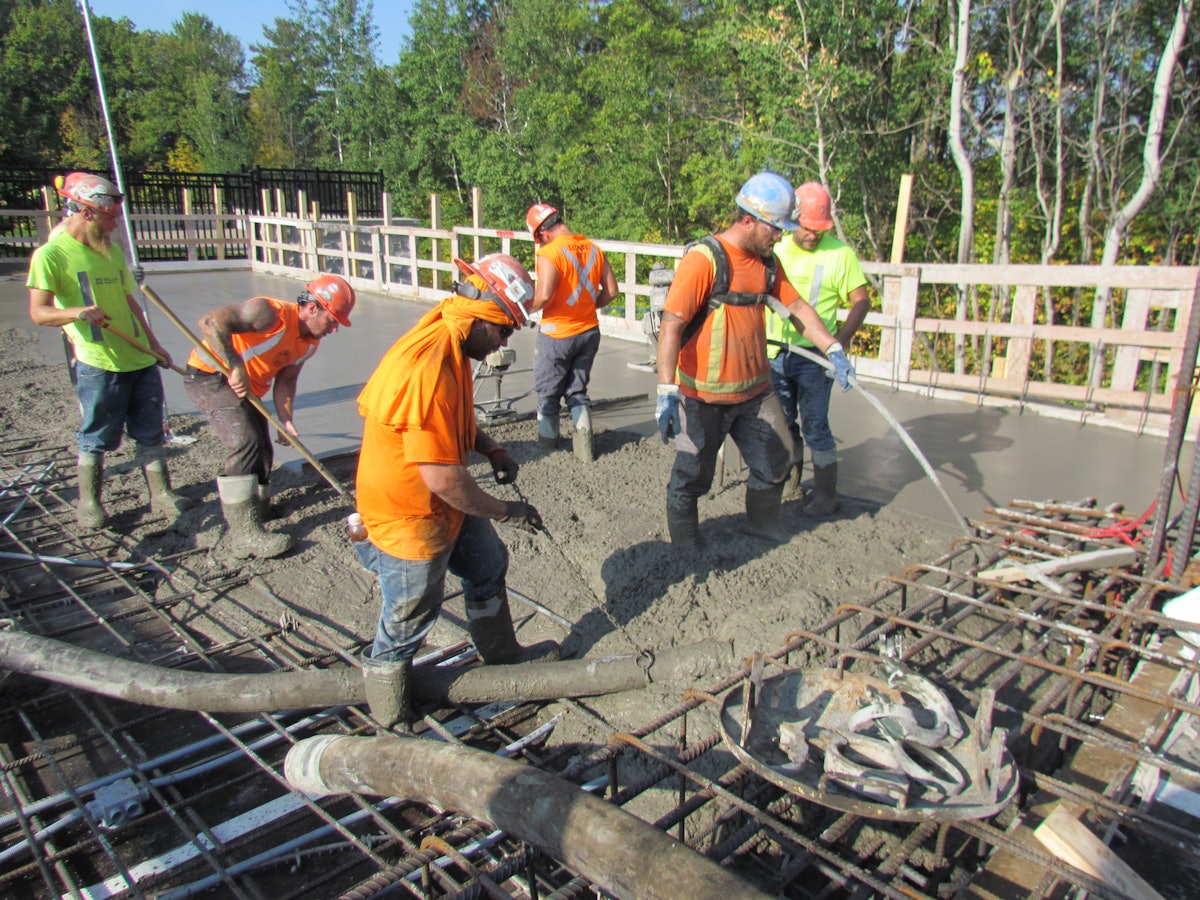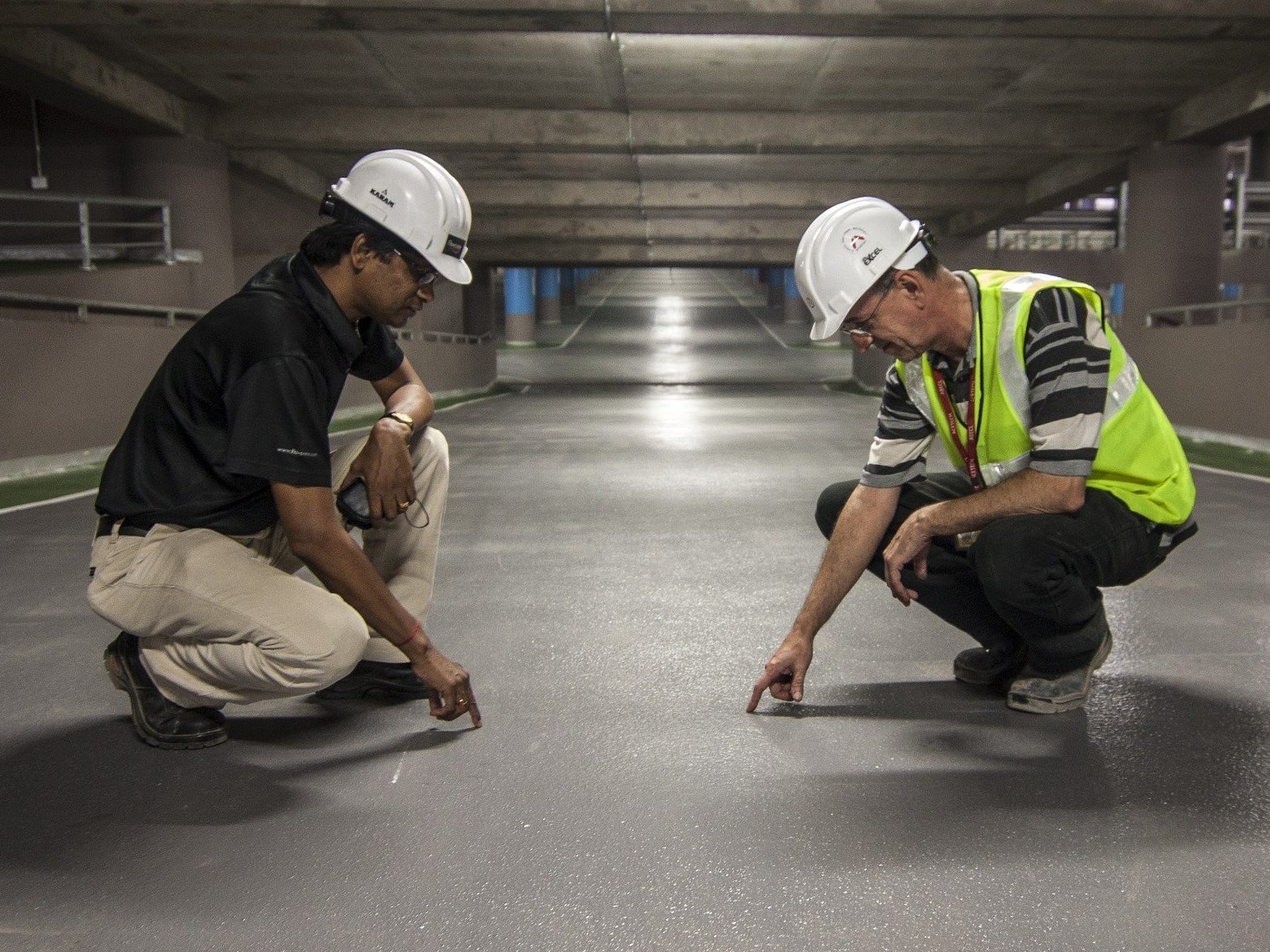West Coast General Engineering industrial concrete: Smart Practices for Long-Lasting Performance in Harsh Conditions
West Coast General Engineering industrial concrete: Smart Practices for Long-Lasting Performance in Harsh Conditions
Blog Article
The Necessary Duty of Concrete Foundation in Structural Honesty and Longevity
When it involves constructing a residential property, the structure is more critical than you might believe. Concrete structures offer unequaled toughness and sturdiness, ensuring your structure can stand up to various environmental challenges. Without a strong base, you take the chance of potential problems like shifting or breaking, which can compromise safety and worth. Comprehending the subtleties of concrete foundations can be the trick to preserving your financial investment for years to come. So, what should you take into consideration following?
Comprehending the Relevance of Concrete Foundations
Concrete structures are essential to the total stability of any structure, as they supply the crucial support required to endure various lots and environmental problems. When you consider constructing a home or an industrial area, the foundation is the very first point you must consider. It acts as an obstacle versus dampness, securing your residential property from water damages. A well-placed concrete structure also stops settling and shifting, which can result in fractures in walls and floorings. You'll want to guarantee that the structure is effectively developed and strengthened, as this impacts the durability of your building. Additionally, a strong foundation can enhance energy efficiency by lowering air leakages. Keep in mind, ignoring the significance of a concrete foundation can cause pricey repair services down the line. Spending in a top quality structure upfront is important for the integrity and durability of your structure.
Advantages of Concrete Foundations for Architectural Integrity
While lots of variables add to a building's architectural stability, concrete structures offer unmatched sturdiness and strength. You'll appreciate that concrete can endure extreme climate condition, resisting both moisture and temperature fluctuations. This durability indicates your framework is much less most likely to experience breaking or shifting over time, which can jeopardize its safety.Additionally, concrete's inherent weight offers a solid base, protecting against motion during natural occasions like quakes or floods. When you choose a concrete foundation, you're also selecting low upkeep; unlike wood, it will not rot or draw in parasites, saving you money and time in repairs.Moreover, concrete's fire resistance supplies added safety, guaranteeing your framework can endure high temperatures without substantial damage. Generally, purchasing a concrete foundation indicates you're focusing on the lasting stability and stability of your building, making it a wise choice for any type of construction job.
Typical Sorts Of Concrete Foundations
When it concerns constructing foundations, comprehending the typical kinds of concrete foundations can aid you make informed selections for your job. The most widespread types include slab-on-grade, crawl area, and full basement foundations.A slab-on-grade foundation is a basic, cost-effective option, where a thick concrete slab is poured straight on the ground. This type functions well in warm climates, as it minimizes heat loss.Crawl space structures raise the home slightly above ground, enabling ventilation and accessibility to pipes and electrical systems. This layout can help stop moisture issues.Full cellar foundations supply extra living or storage area while giving exceptional architectural support. They require more excavation and are generally utilized in cooler environments to avoid frost heave.
Aspects to Take Into Consideration When Designing a Concrete Structure

Ideal Practices for Installing Concrete Foundations
When you're installing a concrete foundation, proper site preparation is vital to ensure security (West Coast General Engineering commercial concrete). You'll also require to understand support strategies to enhance toughness and toughness. Don't overlook the healing procedure, as it plays a fundamental role in accomplishing a strong foundation.
Site Prep Work Importance
It may seem simple, proper site prep work is essential for guaranteeing a solid and sturdy concrete structure. Start by removing the location of any type of particles, vegetation, or organic product that can endanger the foundation's honesty. Next off, evaluate the soil kind and compaction; you might require to excavate or include products to produce a stable base. Degree the ground to assure also weight circulation and stay clear of working out problems in the future. Installing correct drain systems is likewise important to prevent water buildup, which can weaken the foundation gradually. Finally, define the structure's dimensions precisely to lead the putting procedure. By complying with these actions, you'll set the stage for an effective concrete foundation that stands the test of time.
Support Strategies Discussed
As soon as the site is effectively prepared, the next action in assuring a sturdy concrete structure includes applying reliable support techniques. You should begin by utilizing steel rebar, which offers tensile strength and assists avoid cracking. Lay the rebar in a grid pattern, making sure it's raised utilizing spacers to keep correct protection. Furthermore, take into consideration utilizing wire mesh for extra support, specifically in areas subject to heavy tons. Do not forget to tie the rebar intersections securely with cord. For larger structures, fiber support can improve durability, lowering the threat of shrinking fractures. Constantly comply with local building regulations and standards to make certain compliance. By why not try this out using these support strategies, you'll considerably improve your structure's toughness and longevity, laying a solid groundwork for your structure.
Curing Process Fundamentals
To ensure your concrete foundation remedies appropriately, it is essential to keep appropriate moisture and temperature level conditions quickly after pouring. Beginning by covering the surface with a damp cloth or plastic sheeting to preserve wetness. This maintains the concrete moisturized, avoiding cracks and guaranteeing strength. You must additionally keep track of the temperature; perfect treating problems are in between 50 ° F and 90 ° F. If it's too hot, mist the surface frequently to avoid fast dissipation. For chilly weather, take into consideration making use of protecting coverings to preserve warmth. Go for a treating period of a minimum of 7 days, as this is vital for ideal toughness growth. By following these finest techniques, you'll improve your foundation's durability and longevity, making certain architectural integrity for several years to find.
Maintenance of Concrete Structures for Durability
To keep your concrete structure strong and long-term, regular examinations are necessary. You ought to also ensure reliable drain solutions are in location to avoid water damages. If you identify any type of splits, addressing them quickly will conserve you from larger problems down the line.

Routine Evaluations and Assessments
While regular evaluations and analyses could appear like a chore, they're essential for maintaining the integrity of your concrete foundation. By regularly looking for splits, shifts, or indicators of wear, you can capture potential issues prior to they escalate right into expensive repair work. Search for any water merging around the foundation or see it here uncommon settling, as these can indicate underlying problems. It's additionally smart to keep an eye on any type of modifications in your home's framework, like doors that stick or home windows that don't open smoothly. Maintaining a document of your evaluations assists track changes with time, enabling for aggressive maintenance. Inevitably, these evaluations guarantee your structure stays steady, sustaining the long life and security of your entire framework. Don't ignore this crucial aspect of homeownership!
Efficient Drainage Solutions
Routine assessments can expose issues like drain troubles that might jeopardize your concrete structure's stability. To stop water accumulation, ensure your seamless gutters and downspouts direct water away from the structure. Installing French drains can successfully reroute surface area and groundwater, lowering pressure on your foundation walls. Additionally, rating the soil around your home aids assure that water moves away, instead of pooling near your foundation.Consider using sump pumps in areas prone to flooding, as they actively get rid of excess water. Regularly inspect for clogs in drainage systems and clear them promptly. You'll safeguard your foundation's integrity and long life by taking these aggressive steps. Remember, effective drainage solutions are crucial for preserving a solid, resilient concrete foundation.
Motivate Fracture Services
When you discover splits in your concrete foundation, addressing them without delay is vital for maintaining its long life. Little cracks can rapidly evolve into bigger issues, compromising the architectural integrity of your home. Consistently inspect your foundation for indicators of damages, such as horizontal or vertical fractures. If you spot any kind of, don't wait-- repair them quickly. You can use epoxy injections or concrete patching compounds, which work for sealing fractures. Always comply with the maker's guidelines and take into consideration consulting a professional for substantial damages. Remember, prompt repairs not only enhance your foundation's toughness however also conserve you money in the long run by protecting against a lot more comprehensive repairs down the line. Keep positive, and your structure will remain strong and secure.
Resolving Typical Problems With Concrete Foundations
Concrete structures can encounter various problems in time, making it essential to determine and address them quickly. Among one of the most typical issues is fracturing, which can take place because of temperature changes or resolving soil. If you see fractures, it's vital to evaluate their size and deepness; small fractures can commonly be secured, while bigger ones might call for professional evaluation.Water invasion is one more significant worry. Excess dampness can cause mold and mildew development and architectural deterioration. Guarantee proper drain around your structure to alleviate this threat. In addition, seek indicators of moving or bowing wall surfaces, as this can suggest underlying concerns with your structure's stability.Regular assessments are basic to catch these problems early. If you identify any kind of worrying indicators, don't wait to speak with a structure specialist. By remaining proactive, you can maintain the integrity and durability of your concrete structure, assuring your home stays risk-free and protected.
Frequently Asked Questions
How Does Soil Type Influence Concrete Structure Performance?
Dirt kind considerably impacts concrete foundation efficiency. If you have actually got expansive clay, pervious concrete design for example, it can trigger shifting and cracking. Sandy dirt may bring about working out. Understanding your dirt assists guarantee a secure foundation.
Can Concrete Foundations Be Fixed if Harmed?
Yes, you can fix damaged concrete foundations. Relying on the level of the damage, techniques like epoxy injection or slab jacking can restore stability. It's finest to seek advice from an expert for effective solutions.
What Is the Typical Lifespan of a Concrete Structure?
A concrete structure normally lasts 30 to 100 years, depending upon aspects like dirt problems, climate, and upkeep. You'll intend to keep an eye on it to guarantee it continues to be in great shape throughout its lifespan.
Exist Option Products to Concrete for Foundations?
Yes, there are options to concrete for foundations, like steel, hardwood, or also recycled materials. Each alternative has special benefits and downsides, so you should consider your job's particular demands when picking the appropriate product.
Exactly How Does Climate Impact Concrete Foundation Resilience?
Climate greatly impacts concrete structure toughness (West Coast General Engineering commercial concrete). Extreme temperature levels, wetness, and freeze-thaw cycles can weaken the product, causing cracks and structural problems. You need to consider regional climate conditions when intending your structure to ensure lasting performance
Report this page